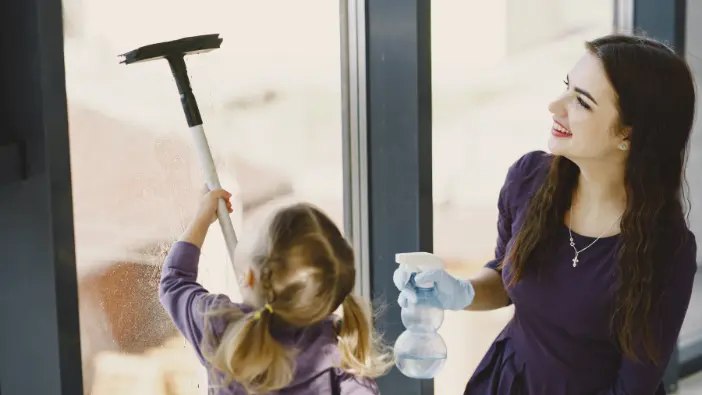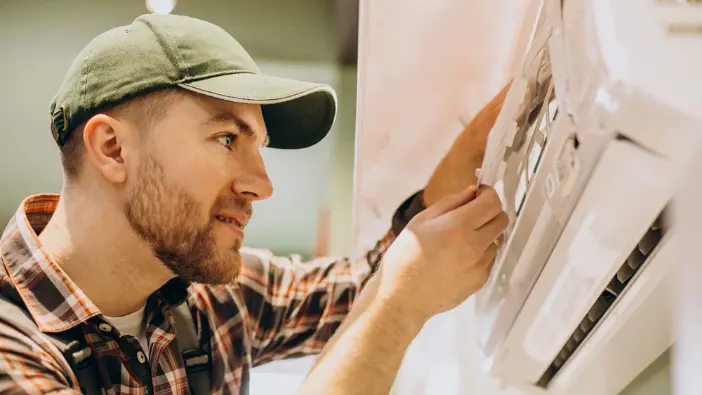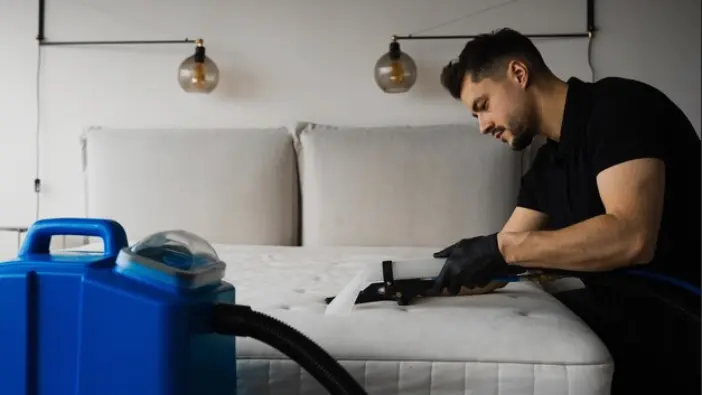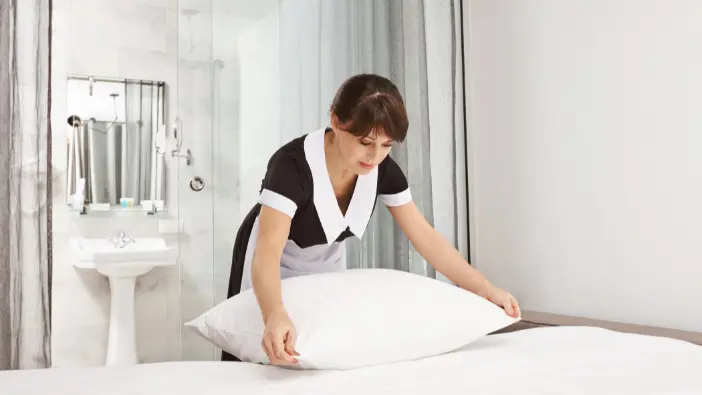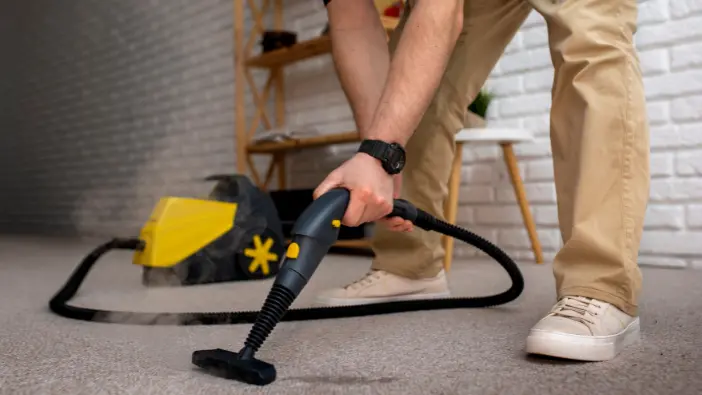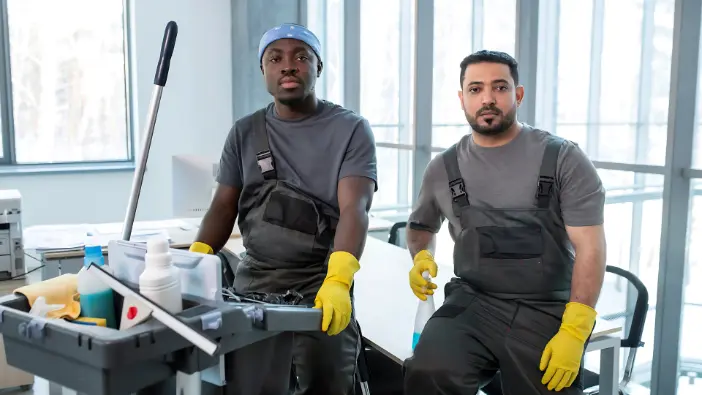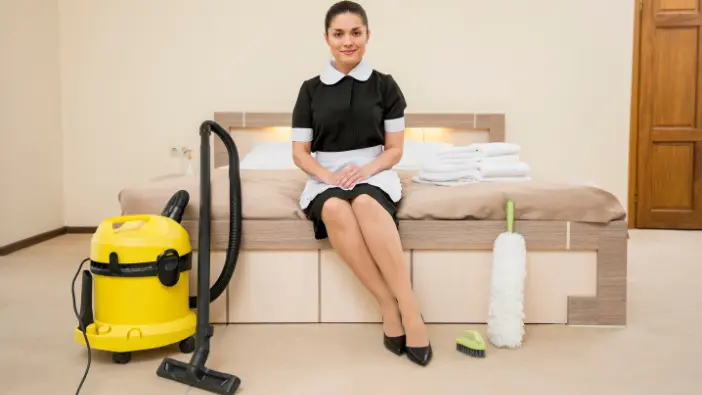Hard water deposits or stains may be a common allergy for numerous households, predominantly in the hard water belt. It can mostly be found on the surfaces of taps, tiles, glasses, and shower doors in the shape of patches that are white and are somewhat impossible to scrub clean. Two of the common concerns, hard water stains and hard water deposits are discussed, as well as how to get rid of them using safe and practical measures. We have it all, whether it is something that you have plucked from your garden or something that you have purchased from your local supermarket.
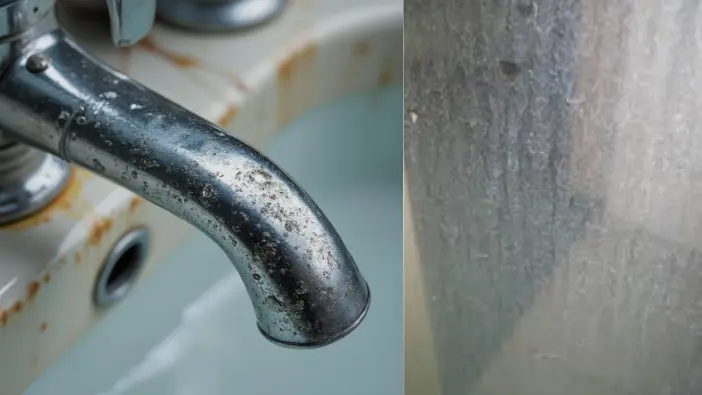
Remove Water Spots
Water spots are largely caused by evaporation of the water from the surface that, in turn, creates spots similar to hard water stains. These are, however, not as strong as hard water stains. At the same time, they can be quite annoying if the spots are left without attention and start building up. When it comes to cleaning the water stains on hard glass surfaces, most people recommend that the best course of action is to initially towel dry the wet spots to avoid further spotting from occurring. To get rid of tough stains, inexpensive vinegar or any other mildly cleansing detergent that works well to remove mineral buildup would easily work.
Hard Water Stain Removal Techniques
The most common explanation given for the persistent hard water stains is the mineral deposits that remain for calcium and magnesium hard water. Whenever this hard water gets deposited onto a surface, white spots, which have a cloudy appearance and, over time, become embedded as well. In order to make it easier for those who are experiencing this problem, below are some methods by which these hard water stains can be removed:
- Scrubbing: A scrub with a soft brush or sponge having a cleaner should remove the minerals. However, it would help if you were cautious about glass or tiles since they are sensitive and easily scratched.
- Vinegar Soak: For concentrated hard water stains on some areas, white vinegar easily dissolves mineral buildup – a useful solution. This, too extends to faucet handles or the tiles as well.
- Baking Soda Paste: This is another handy method that involves baking soda paste, which is formed by mixing baking soda and water, then this paste is applied over the surface with the tough stains. This isn’t very polite but acts effective in removing any mineral deposits as well.
Understanding Hard Water Stains and Their Causes
What Are Hard Water Stains?
Let’s start with how to identify hard water stains. Hard water stains are composed of particles left by hard water and are, therefore, ‘stains’ or marks formed on surfaces. When that water evaporates or dries out, some minerals left in there, calcium or magnesium for example, embedded within that surface, and there are these sweat patches appear. And like every other sort of stain, the hard water stain is also prone to ageing and becomes stronger with age.
Causes of Water Stains on Faucets
Water faucets in the house suffer from water stains a lot because they are exposed to water usage almost all the time. After water is splashed onto the faucet and later dries up, a thin layer of minerals in the water is left that would have silver spots or lines across the surface. Such deposition processes are made quicker due to factors such as the quality of water experienced.
Why Hard Water Leaves Stains
There are stains left by the extensive quantity of magnesium and calcium which are present in hard water. Most of them are likely to remain when the water dries up because they are difficult to dissolve in water. Through time, there minerals can create stains that are rather tough to get rid of.
How To Remove Hard Water Stains On Different Surfaces
Not every area uses the same method of cleaning. Sure, as with hard water stains – on glass surfaces, tiles, and shower doors – there is a way to get rid of these difficult stains.
Hard Water Stain Removal from Glass
Among the glass surfaces, including glazed partition glass doors in the bathrooms or surrounding window walls, upon constant washing, hard water stains would be observed. A solution made up of equal parts vinegar and water is very effective for the removal of any stubborn stain. Take a cloth and soak it lightly with the solution. To get rid of built-up stains, a non-bleach and non-abrasive detergent should suffice. Don’t apply steel wool on the surface, as it will scratch the glass.
Remove Hard Water Stains from Tiles
Hard water spots can attach to walls and floor tiles, more specifically in bathrooms and kitchens. Just fill a spray bottle with a mixture of water and vinegar and spray it on the stained spots. Let it rest for a few minutes, then remove it with a sponge. If the stains remain, repeat the activity until all marks have vanished. To make the stains even easier to remove, add a small amount of baking soda to the tiles and scrub them lightly using a damp cloth.
Hard Water Stains on Shower Doors
Shower doors have gone through a ton of bad reputations to the point where no one cares if they have hard water stains. These can be cleaned with a mixture of vinegar and water or by a cleaner bought from the store. For hard water stains, clean the door using an auto cleaner, let it stay for a minute, and wipe the area with a cloth. To get rid of mold in the shower, use a mold remover or a mixture of bleach and water, apply it to the affected areas, and scrub gently.
Natural Remedies to Remove Hard Water Stains
Use Vinegar and Baking Soda for Shower Mold Removal
Opt for vinegar and baking soda if you have run out of bleaches and stronger chemicals. A solution of vinegar may be used through spray application on surfaces with mold and after two to three minutes, the area can have baking soda used to rub it out. The area should be properly cleaned, and the moisture patted dry.
Natural Solutions for Mold Removal
If you are one of those consumers who dislike chemical-based removers, there are other alternatives to removing shower mould. These not only do work but are job-friendly as well.
DIY Hard Water Stain Remover
For those who want to learn how to get rid of these hard water stains, there is an easy, inexpensive way to do it. There is a way to tackle hard water stains from a surface by pouring vinegar in water and creating a solution of equal measurement between the two liquids. Utilize a spray bottle to apply the solution to the problematic regions of the surface. Please wait for a few minutes for the solution to dry, and then wipe it with a cloth. This method is great for cleaning water faucets, shower doors, and tiles that tend to accumulate a lot of grime, dirt and water stains.
Vinegar for Hard Water Stains
A highly effective technique to treat tough, hard water stains is using vinegar. This is largely due to the fact that vinegar is quite acidic, and these types of sources are very efficient at dissolving the minerals found in hard water. Just soak a cloth in vinegar and moisten the hardened areas with it. Repeat the procedure 10 to 15 minutes later. Finally, a light brush can be used against it in order to rub the stains out.

Water spots with Baking Soda
Several methods can be helpful for getting rid of water spots on glass, and one of them is baking soda. In the event that one wishes to do that, one needs to take a small amount of baking powder and mix it with water to form a paste. The water spotted areas should be painted with the paste, and a slight amount of time should be allowed to pass. After that, one has to perform light scrubbing with a sponge or a brush in order to remove those stains.
Commercial Products for Removing Hard Water Stains
There are a number of hard water stain treatments in the market that can be favoured by applicants who want to avoid using stationary tack appliances. These treatments can work efficiently, as a good number have been proven to remove these mineral deposits faster than home remedies.
Best Cleaners for Hard Water Stains
For Treating Hard Water Stains CLR and Lime-A-Way have also been mentioned as some of the best in this respect. These are designed to get rid of Calcium and Lime that result from hard water usage. Adhering to these instructions can avoid harsh treatments on different surfaces.
Hard Water Stain Remover Sprays
Spray cleaners can easily be used wherever the need occurs suddenly and comes from an extremely brief need. Next, when selecting the things for purchase, it is necessary to recommend that they act as either hard water stain removal or water deposit remover sorts. Spray the hard water stain areas, and after 2-3 minutes, the area may be wiped with a damp cloth.
Ways To Avoid Hard Water Stains In The Future
The obvious route towards easy removal of hard water stains is to take the battle to the source. Below are a few suggestions to keep the surfaces clean from the deposits of minerals over time.
Avoid Hard Water Stains In The Bathroom
In the bathroom, a squeegee to wipe shower doors and tiles after each use may be useful. That would get rid of water before it dries. Fitting a water softener could also be helpful in removing the hardness of water in such cases.
How to Stop Water Spots from Forming
To prevent water spots on the faucets and even the glass, towel dry the surfaces after use. That ought to restrict water evaporation and thus prevent stains from developing. Another good tip is to coat all surfaces with water-repellant cleaning agents so all surfaces are free of rough scales.
Maintaining Surfaces to Avoid Hard Water Damage
Here are some suggestions related to hard water stains on the countertops that can be a great help for anyone struggling with cleaning their hard water stains.
Consider Using a Water Softener
Using a water softener can easily help with the unattended water stains that build up over time, considering hard water. It is useful to read about water and mineral content because these minerals can build up in the house and also make it hard to clean. The overall hard water stains in the house should not be possible to build up due to the cleanliness of the water used.
Regular Cleaning to Avoid Mineral Buildup
Maintenance for cleaning is essential because cleaning is often overlooked. Investigate areas where there is a lot of activity and attention, such as faucet handles and door knobs. A strong and reliable cleaning schedule will help a lot with the prevention of hard water stains.
Proper Surface Care to Prevent Stains
Cleaning soft surfaces such as tiles and glass with scrubbers should be avoided since they will leave scratches and grooves that will make it easier for stains to settle inside. Rather, wait for the surface to dry and use a soft cloth or sponge soaked in mild soap and water.
How to Protect Tiles from Water Stains
Water stains can be viewed as a result of water leaking into the grout joints. But there is a way to defend such areas by using tile sealant. This will stop water from getting into the grouts and causing stains. The dirty areas will also give support to the tiles which will help them avoid accumulation of dust particles.
Why Hard Water Stains Are Hard to Remove
Hard water deposits have become a strong stain due to minerals, and scrubbing them from surfaces has proven to be a nightmare. These types of stains are hard to scrub out and may require polishing or special products to remove them entirely.
Why Hard Water Stains Are Stubborn
The calcium and magnesium originate from the water, which people perceive as hard water, and this always settles as hard water stains that cannot be easily removed. These minerals are bound to the surface and leave behind stains that are quite hard to remove without the right equipment.
The Challenge of Removing Mineral Deposits
There are some mineral deposits that, with time even seem to thicken, which makes it easy to not remove them. The buildup frequently does require the use of vinegar or stronger types of cleaners.
How to Deal with Tough Hard Water Stains
Stubborn stains can be removed, only that it takes time and a little bit of patience. Efforts can be made to switch between cleaning methods, and effective time should also be given for a specific cleaner to work. A stiff scrub with a soft brush head is quite effective at scratching the stains off the surface without any risk of damaging the surfaces.
Conclusion
Hard water stains can be removed without much difficulty. Hard water stains can be avoided or minimized, and any surface in your house that is stained can be returned to its original beauty by using the appropriate strategies. Consistent cleaning practices and the best time to act when stains first appear are crucial for those using natural methods or commercial cleaners. As per the instructions discussed in this guide, any person will be able to remove hard water stains that were caused by the careless use of water.

